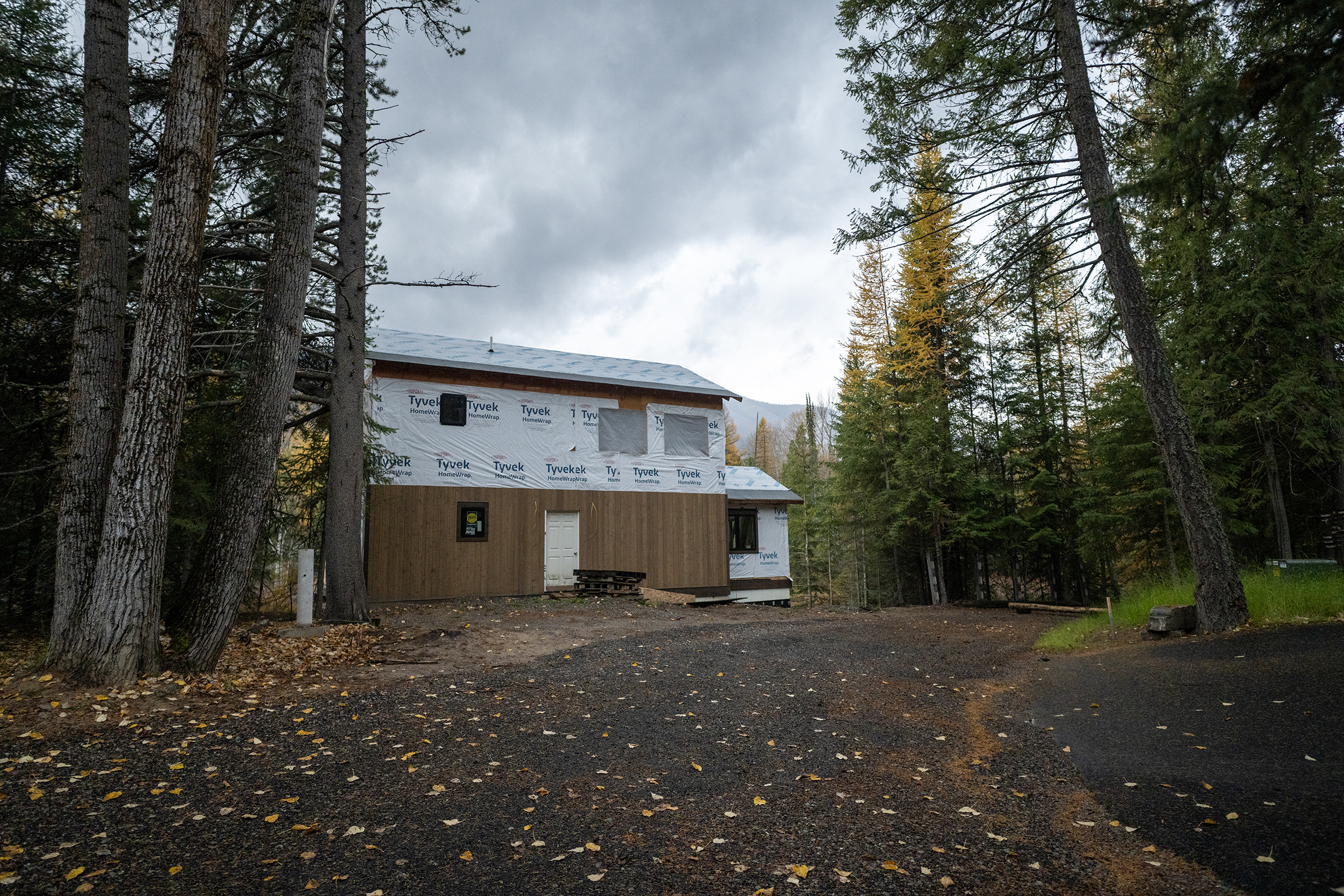Hearing officer upholds Flathead Conservation District's authority in Glacier Park inholder case. District, in turn, orders house removed by April 1
Flathead Conservation District Hearing Officer Laurie Zeller Monday found that the Flathead Conservation District has jurisdiction over a house the board claims was built illegally on the banks of McDonald Creek in Glacier National Park.
After Zeller presented her findings, the Conservation District Board, in turn, passed a motion to require house owners John and Stacy Ambler to apply for the necessary state permits, called 310 permits, by Jan. 1 to tear the house down. It also gave the San Diego, California couple until April 1, 2024 to actually remove the structure, which is substantially built.
Whether any of that happens or not remains to be seen, as Trent Baker, the Amblers’ attorney, told the Conservation board the Amblers would formally sue the Conservation District in Flathead County District Court.
Under state law, the couple has the right to appeal the declaratory ruling to district court and even the Montana State Supreme Court, if it sees fit.
Zeller has had about two months to mull the case over — a hearing on the Ambler case was held back in August. She admitted the Amblers “presented a pretty strong case.”
But Zeller found that, in the end, the case was about private individuals on private land and it was a private project, which was, indeed, subject to the state’s Montana Natural Streambed and Land Preservation Act.
In March, the Conservation District initially found the Ambler home in violation of the state statute as the Amblers never applied for or received, what’s known as a 310 permit, which is necessary for any private landowner doing work along Montana’s rivers and streams.
The Conservation District Board is  The Ambler home, as seen from Apgar Village in Glacier National Park.charged with overseeing permitting of any sort of construction or other work done near streams and rivers in Flathead County.
The Ambler home, as seen from Apgar Village in Glacier National Park.charged with overseeing permitting of any sort of construction or other work done near streams and rivers in Flathead County.
The Conservation Board initially ordered the Ambler home removed by Nov. 1.
But the Amblers appealed that decision and under the Streambed law, they were allowed to present their case to a hearing officer — Zeller — who was appointed by the Conservation District back May.
A hearing was subsequently held in August and Zeller presented her findings to the board Monday.
Baker argued at the hearing that the state didn’t have jurisdiction over the Ambler home because Montana had ceded its authority to the federal government when Glacier became a park in 1910.
Glacier National Park has largely been mum on the whole matter. Park Superintendent David Roemer previously told the Hungry Horse News that the Park’s jurisdiction in the case starts at the high water mark of the idyllic stream.
The Amblers property, located in Apgar, not far from the Park’s iconic Lake McDonald, is part of an old subdivision of private parcels that pre-date the formation of the park. They pay state and county taxes just like any other property in Montana. Such properties are known as inholders and Glacier has dozens of them.
Apgar has no zoning. The Amblers have also previously claimed they didn’t know they needed a permit to build next to the stream.
The Amblers began building the home about a year ago, pouring a concrete retaining wall into the bank and then back-filling it to create more room for the home itself. The matter came before the Conservation District after several residents, some of them former Glacier National Park employees, filed formal complaints over the house. The district then did an investigation of the house and property and found it to be in violation of state statute.
The Amblers, as time went on, continued to work on the house. They didn’t stop until the District issued a cease and desist order last spring. The District has since allowed the Amblers to do some exterior work on the home, including finishing up the roof and installing some windows as winter approaches.
The Conservation District didn’t want to be held liable for weather damage to the house if it were to ultimately lose the case.


